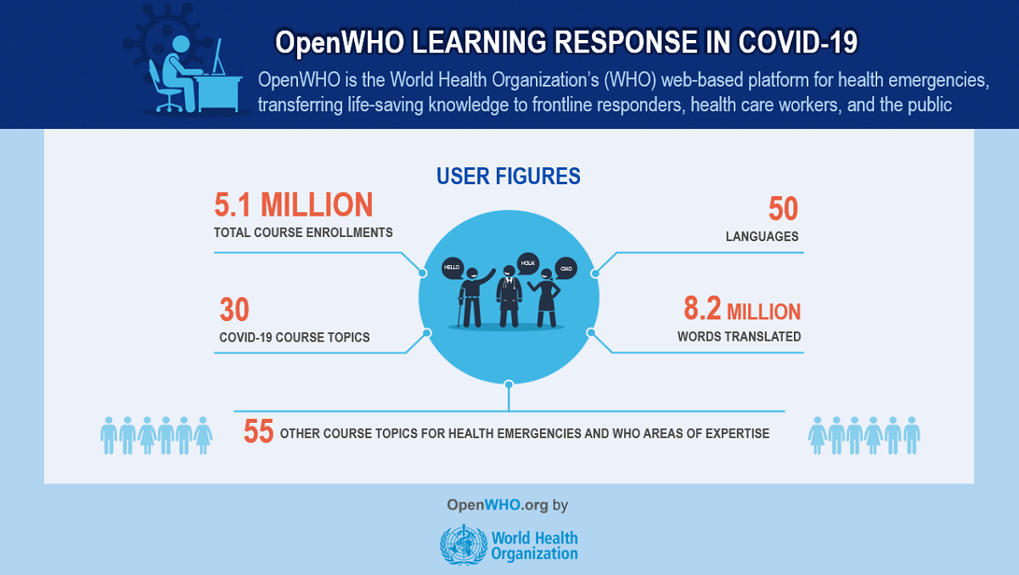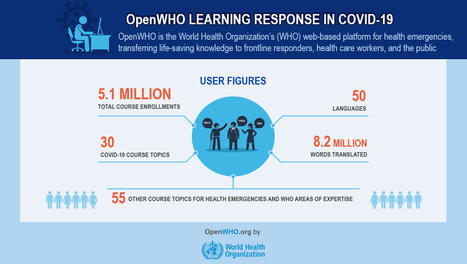online training

The World Health Organization (WHO) expanded access to web-based learning for COVID-19 through its open-learning platform for health emergencies, OpenWHO.
Throughout the pandemic, OpenWHO has continued to publish learning offerings based on the WHO’s emerging evidence-based knowledge for managing the COVID-19 pandemic.
This study presents the various findings derived from the analysis of the performance of the OpenWHO platform during the pandemic, along with the core benefits of massive web-based learning formats.
The following factors have led to the success of this unprecedented training and learning response in response to the current pandemic:
- Equity: the design of learning activities is based on the principles of equity to health, supported by equity in access to education, and learning for health. Cost and digital barriers often inhibit those who most need knowledge from accessing it. The elimination of these barriers has been the fundamental premise of the WHO’s health emergency training response. Equitable access to critical health emergency knowledge helps provide core learning in the native languages of the most vulnerable populations and includes sign language.
- Accessibility: web-based learning enables participants with even basic technology to access learning from almost anywhere in the world. OpenWHO courses are globally successful because they are free, self-paced, low-bandwidth adjusted, downloadable and portable, and available on any device. Offline options increase access even further.
- Flexibility: self-paced mass web-based learning delivery enables individuals to learn at their own speed, at their preferred time, and in their preferred place. It builds on and provides for the learners’ preferences and availability.
- Learner-centricity: user-friendly options allow individuals to choose formats specific to their learning needs and provide the basis for more customized “just-in-time” learning experiences and continuous, lifelong learning.
- Quality: courses that are based on the latest scientific evidence and on WHO technical guidance and the use of adult learning techniques assure the quality of content and enhance learning.
This is the first time in the WHO’s history that a learning resource has been launched this rapidly in high-quality, globally accessible learning formats, which are widely and freely available on a massive scale to manage a health threat.
The pandemic has shown that web-based learning is no longer a temporary replacement for direct training, but rather a new way for more efficient and equitable learning.
The experience and findings reported herein provide guidance for any individual to be better prepared for subsequent instances where a major and fast learning response is required.
access the entire study report at https://publichealth.jmir.org/2021/4/e28945
Lire l'article complet sur : publichealth.jmir.org


